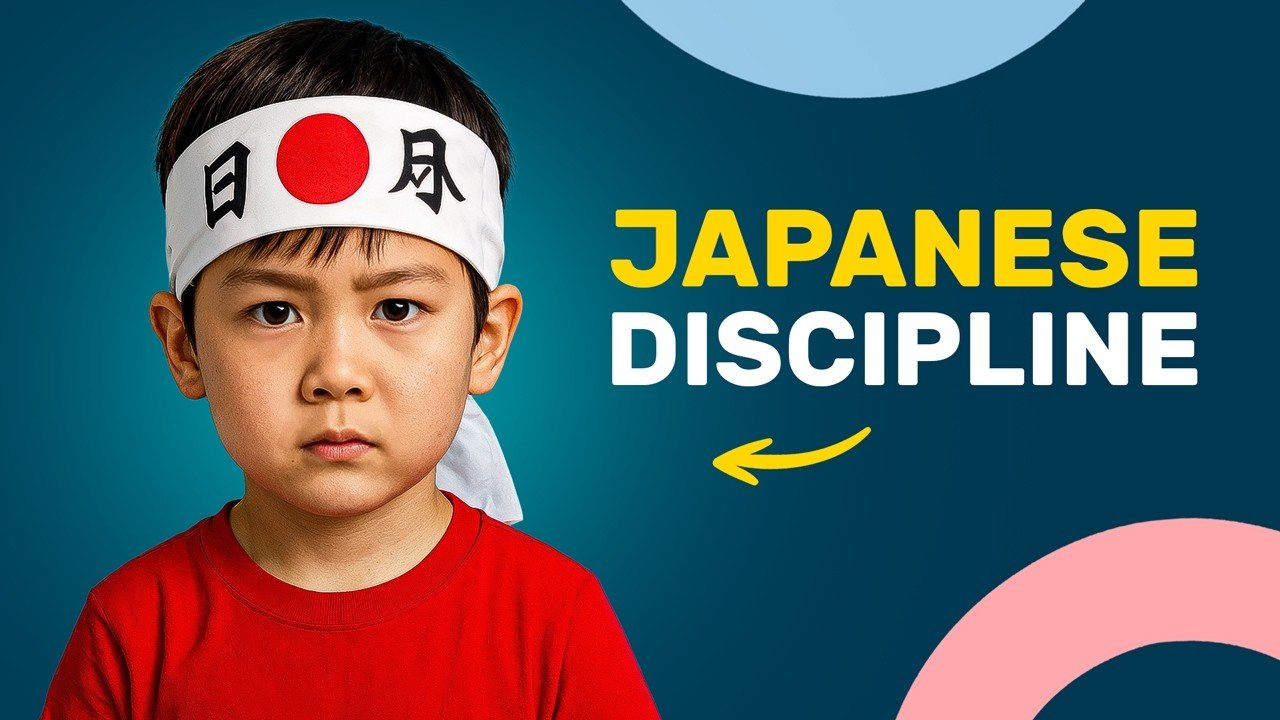When it comes to raising children, the Japanese have some effective strategies that many parents overlook. In the video by Emma Hubbard, you will learn about the 3 key principles that Japanese parents use to raise obedient and respectful children without constant battles. These principles include modeling the behavior you want to see, establishing clear rules to reduce anxiety in children, and asking crucial questions that turn misbehavior into learning opportunities. Whether you have a defiant toddler or a curious 5-year-old, these strategies may be beneficial for your family.
Through different chapters in the video, Emma Hubbard explains each strategy in detail, emphasizing the importance of building a calm and cooperative environment at home. Remember, the content shared in the video is not a substitute for professional advice, so always consult with a healthcare professional if you have any concerns about your child’s health or behavior. By implementing these Japanese parenting techniques, you may find a more harmonious and peaceful relationship with your children.
Key Principles of Japanese Parenting
When it comes to parenting, Japanese parents follow specific principles that help them raise calm, respectful children without constant battles. These key principles are crucial for instilling discipline, fostering growth, and cultivating positive relationships with their kids.
Modeling Desired Behavior
One of the fundamental principles of Japanese parenting is modeling desired behavior. By leading by example, remaining calm and composed, and showing respect towards others, parents can teach their children valuable lessons in behavior and attitude. Children often mimic what they see, so it is essential for parents to demonstrate the behaviors they wish to instill in their kids.
Setting Clear Rules
Another key principle of Japanese parenting is setting clear rules. Establishing consistent boundaries, communicating rules effectively, and enforcing rules with kindness and understanding help children understand expectations and boundaries in the household. Clear rules provide structure and security for children, reducing their anxiety and uncertainty.

Transforming ‘Naughty’ Behavior into Learning Opportunities
Japanese parents believe in transforming ‘naughty’ behavior into learning opportunities. By using discipline as a teaching tool, encouraging self-reflection, and fostering a growth mindset, parents can help their children understand the consequences of their actions and learn from their mistakes. This approach shifts the focus from punishment to personal growth and development.
Strategies for Dealing with Defiant Behavior
When faced with defiant behavior from their children, Japanese parents focus on understanding the root cause of defiance, implementing positive reinforcement techniques, and showing empathy and active listening. By addressing the underlying issues behind the defiant behavior and providing support and understanding, parents can help their children navigate challenging emotions and behaviors.
Handling Questioning Behavior in Children
Japanese parents encourage curiosity and critical thinking in their children by engaging in open dialogue and validating their perspectives. By creating a safe space for children to ask questions and express their thoughts, parents can foster intellectual growth and independent thinking in their kids. Valuing children’s perspectives helps build trust and respect within the parent-child relationship.
Building Cooperation and Respect in Kids
To promote teamwork and collaboration, Japanese parents teach the importance of empathy and nurture positive relationships within the family. By emphasizing cooperation and respect for others, children learn valuable social skills and develop strong and healthy relationships with their siblings and peers. These lessons in teamwork and empathy translate into positive interactions and communication in various settings.
Maintaining Consistency in Parenting
Consistency is key to successful parenting, and Japanese parents emphasize creating a routine and structure, being consistent with consequences, and avoiding mixed messages. By providing predictability and stability in the household, parents establish a sense of security and trust with their children. Consistency in parenting helps children understand what is expected of them and promotes a harmonious family environment.
Encouraging Responsibility and Independence
Japanese parents encourage responsibility and independence in their children by assigning age-appropriate tasks, allowing freedom within limits, and teaching problem-solving skills. By giving children opportunities to take on responsibilities and make decisions, parents empower their children to become self-sufficient and develop essential life skills. Encouraging independence helps children build confidence and resilience as they navigate challenges and obstacles.
Conclusion
Reflecting on the key principles of Japanese parenting, it is evident that modeling desired behavior, setting clear rules, and transforming ‘naughty’ behavior into learning opportunities are essential components of raising obedient and respectful children. By implementing strategies that prioritize discipline, growth, and positive relationships, parents can embrace a holistic approach to parenting that nurtures their children’s overall well-being and development. By following the examples set forth by Japanese parenting, parents can create a supportive and nurturing environment where their children can thrive and grow.

